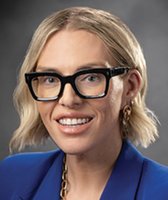Stand up for the facts!
Our only agenda is to publish the truth so you can be an informed participant in democracy.
We need your help.
I would like to contribute
Supporters of gun rights say President Barack Obama and others are confusing the issue of gun selling by talking about a "gun show loophole." Some go so far as to say such a loophole doesn’t exist.
When Chris Wallace of Fox News Sunday asked Republican presidential candidate Jeb Bush to explain what was wrong with Obama’s ideas, Bush had this to say:
"Well, because you don't know the details of it, but the so-called gun show loophole -- which I think is what he’s talking about -- doesn't exist. People that want to occasionally sell guns ought to have the right to do so without being impaired by the federal government. If states want to create specific rules around that kind of behavior -- fine."
We found Bush’s specific comments on Fox News Sunday a little jumbled and hard to fact-check, though he mimics similar claims by House Speaker Paul Ryan and other pundits. So here we’ll lay out what you need to know about current gun laws and what people mean when they talk about a loophole.
Our findings show that there is, in fact, an exemption in the law. But the exemption pertains to who sells the guns rather than where they sell them.
1. Federally licensed gun sellers are required to run background checks. But not all sellers are required to be licensed. Some of those unlicensed sellers sell at gun shows.
Federal law requires that persons who are engaged in the business of dealing in firearms be licensed by the federal government. Obama’s goal with his new plan is to tighten the screws on who is included in that group.
Announced Jan. 5, Obama’s plan requires those in the business of dealing in firearms -- including sellers at stores, gun shows and on the Internet -- get a license. Once they’re licensed, they are required to conduct background checks on all buyers.
But private sellers without a federal license don’t have to meet the same requirement. Though this exception is often referred to as the "gun show loophole," it actually applies more broadly to unlicensed individuals, whether they are selling at a gun show or somewhere else. (Some states have implemented their own background check requirement beyond federal law.)
Bush’s argument centers on the fact that the loophole doesn’t single out gun shows.
A Bush spokesman pointed to a 2000 article by David Kopel, a policy analyst at the libertarian Cato Institute. (The spokesman also cited a brief from Politico that made a similar argument to Kopel’s.) Kopel wrote that for decades, dealers have been required to obtain a federal firearms license. But those who sell firearms from time to time -- such as to a relative -- aren’t required to obtain such a license.
"Existing gun laws apply just as much to gun shows as they do to any other place where guns are sold," he wrote. "If you walk along the aisles at any gun show, you will find that the overwhelming majority of guns offered for sale are from federally licensed dealers. Guns sold by private individuals (such as gun collectors getting rid of a gun or two over the weekend) are the distinct minority."
Kopel, a law professor at Denver University, told PolitiFact that his own research was based on gun shows in Colorado in the 1980s and 1990s.
2. It’s not clear how many sellers are licensed and how many are not. Some studies are out of date.
Nationwide, how many gun sellers are not required to hold a license is difficult to determine. Some of the research we found about the percentage of gun show vendors who are licensed was outdated or limited in scope.
A 1999 federal study by the Bureau of Alcohol, Tobacco and Firearms found that those with federal firearm licenses make up 50 to 75 percent of the vendors at gun shows. But that included vendors who sold guns or other paraphernalia and accessories, so it was difficult to tell how many sold only guns. ATF has not updated that study, a spokeswoman told PolitiFact. (A separate outdated study looked at what percentage of gun sales escape background checks, but that study had various shortcomings, according to PolitiFact Virginia.)
Professors at Northeastern and Harvard universities conducted a gun survey in 2015 that isn’t yet published. The national survey of 4,000 non-institutionalized adults found that 22 percent of the people who purchased guns -- at gun shows, stores or elsewhere -- underwent no background check, said Matthew Miller, professor of Health Sciences and Epidemiology at Northeastern University and co-director of the Harvard Injury Control Research Center.
When researchers excluded purchases between family and friends, that number dropped to 15 percent, which equates to approximately 5 million gun owners whose most recent purchase did not involve a background check.
3. Experts warn that the phrase "gun show loophole" is imprecise at best. But people do buy guns without having to undergo background checks.
Several experts said the phrase "gun show loophole" isn’t the most accurate way to describe the gap in the law.
"There is a huge loophole in federal law, but it isn't for gun shows," UCLA law professor Adam Winkler said. "What is called the gun-show loophole is misnamed. It should be the ‘private sale loophole’ or the ‘background check loophole.’ ... The reason people talk about gun shows is that they are easily accessible marketplaces for people who don't want to be subject to a background check to find non-licensed gun sellers."
Gabriel Chin, a professor at UC Davis School of Law, told PolitiFact that there is a loophole in the sense that it has not been clear how many firearms one has to sell before one is required to obtain a license.
"Remember, gun shows are mainly on weekends, so there is room for someone to claim ‘this is a hobby or part of my collection’ when it is also a substantial business," Chin said.
Gary Kleck, a criminologist at Florida State University, said the term "gun show loophole" is misleading if it implies that the law didn’t intend to exempt some sellers.
"The term ‘loophole’ suggests that it was a minor, unintended flaw in the design of the law, something inadvertently overlooked by lawmakers, when it was actually the very intentional result of a carefully worked-out political compromise between those who wanted background checks on all gun acquisitions and those who did not want any at all," he said.
Our Sources
Cato Institute, "The Facts about gun shows," Jan. 10, 2000
Fox News, Transcript of Fox News Sunday, Jan. 3, 2016
White House, "Remarks by the President on Common-Sense Gun Safety Reform," Jan. 5, 2016
White House, "New Executive Actions to Reduce Gun Violence and Make Our Communities Safer," Jan. 4, 2016
ATF, "Do I need a license to buy and sell firearms?" accessed Jan. 5, 2016
ATF, Q&A, accessed Jan. 5, 2016
Injury Prevention by Garen J. Wintemute, "Gun shows across a multistate American gun market: observational evidence of the effects of regulatory policies," 2007
Politico, Wrongometer, October 2015
PolitiFact Virginia, "McAuliffe says 40 percent of U.S. gun sales escape background checks," Nov. 2, 2015
PolitiFact, "Obama: Violent felons can buy guns online without background checks," Jan. 5, 2015
Interview, Matt Gorman, Jeb Bush spokesman, Jan. 5, 2016
Interview, Amy Hunter, NRA spokeswoman, Jan. 5, 2016
Interview, UCLA Law professor Adam Winkler, Jan. 5, 2016
Interview, Gabriel Chin, a professor at UC Davis School of Law, Jan. 5, 2015
Interview, Matthew Miller, Professor of Health Sciences and Epidemiology at Northeastern University and Co-Director of the Harvard Injury Control Research Center, Jan. 6, 2015
Interview, David Kopel, Associate Policy Analyst with the Cato Institute, Denver University law professor and Research Director of the Independence Institute, Jan. 5, 2015
Interview, Garen Wintemute, UC Davis public health professor, Jan. 5, 2016
Interview, Eric Schultz, White House spokesman, Jan. 5, 2015
















































